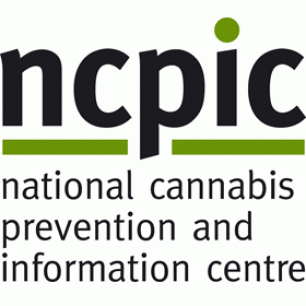In a world-first, researchers from the National Cannabis Prevention and Information Centre (NCPIC), based at the University of New South Wales, are leading a study to determine whether the pharmaceutical drug Sativex can help people better manage cannabis withdrawal symptoms as a platform for ongoing abstinence.
It is estimated that there are at least 200,000 people dependent on cannabis in Australia, with one in ten people who try the drug at least once in their lifetime having problems ceasing use.
“One of the major barriers for regular cannabis users when they try to quit is withdrawal,” said NCPIC director Professor Jan Copeland. “Withdrawal symptoms may include sleep difficulties, cravings and mood swings and although these are not life threatening, they are significant enough to cause marked distress and lead people to go back to using the drug.”
“There is currently no targeted drug available to assist with cannabis withdrawal. Tobacco smokers have nicotine replacement therapies to assist them when they stop cigarette smoking and opiate users have synthetic opioids like methadone. This study will investigate whether a pharmaceutical preparation of botanical cannabis known as Sativex has the potential to help cannabis users in a similar way.”
Sativex is administered through a mouth spray. It is registered for use in Canada, Spain and the UK as treatment for the symptomatic relief of neuropathic pain in multiple sclerosis patients. The spray contains the cannabis extracts, delta-9-tetrahydrocannabinol(THC) and cannabidiol (CBD). THC is the substance primarily responsible for the psychoactive effects of cannabis, however, the spray administers the substance at doses below the level of intoxication.
This randomised controlled trial is funded by National Health and Medical Research Council and is currently recruiting participants for the limited places available. It requires an admission to hospital in either Sydney or Newcastle for one week free of charge. For more information on the study and to learn if you might be eligible, please contact Dr David Allsop on (02) 9385 0448 during office hours, or email: cannabiswithdrawal@unsw.edu.au
Ends
Contact Details:
Morag Millington, tel. (02) 9385 0213, 0431 981 046 email m.millington@unsw.edu.au
Paul Dillon,tel. (02) 9385 0226, 0419 402 099 email p.dillon@unsw.edu.au
This media release originally appeared on NCPIC's website.
Background Information
Cannabis and dependence
- Cannabis is the most widely used illicit drug in Australia
- According to the 2010 National Drug Strategy Household Survey, 35.4% of the Australian population reported using cannabis at some time in their lives, with 10.3% having used it in the last 12 months
- Most people who use cannabis do not become dependent on it, or use the drug regularly, however, those who use the drug for a longer time and more often may become dependent
- Historically, cannabis was not seen as a drug of dependence like heroin or alcohol, but cannabis dependence is now well recognised in the scientific community.
- Dependence on cannabis means that the person needs to use cannabis just to feel ‘normal’
-
In order to be diagnosed as cannabis dependent, a person needs to experience at least three of the following in the one year:
- tolerance;
- withdrawal symptoms;
- using more cannabis than was intended;
- persistent desire to stop or cut-down cannabis use but inability to do so;
- spending a lot of time obtaining, using or recovering from the use of cannabis;
- giving up important activities in favour of using cannabis; and/or
- using cannabis even when it is known that it causes problems
- Around 200,000 people are thought to be dependent on cannabis in Australia
- About one in ten people who have tried cannabis at least once in their lifetime will become dependent on it
- Withdrawal symptoms from cannabis are usually over after two weeks
- The most common symptoms include anxiety/nervousness, restlessness/physical tension, reduced appetite, mood swings/irritability/restlessness, cravings to smoke cannabis and sleep difficulties including insomnia and strange dreams
What is Sativex?
- SATIVEX® is a treatment for the symptomatic relief of neuropathic pain in multiple sclerosis in adults, and has been approved for use in Canada, Spain and the UK
- SATIVEX® is a buccal (mouth) spray which contains the cannabis extracts delta-9-tetrahydrocannabinol (THC) and cannabidiol (CBD)
- THC is the substance primarily responsible for the psychoactive effects of cannabis, however, the spray administers the substance at doses below the level of intoxication
Double blind, randomised, placebo controlled trial of SATIVEX® for the management of cannabis withdrawal
- The primary objective of the study is to examine the safety and efficacy of SATIVEX® in the inpatient management of cannabis withdrawal, in a double blind, randomised trial compared to placebo
- The study, funded by National Health and Medical Research Council, is currently recruiting participants over the age of 18 years, who are regular cannabis users with the desire to quit (but have tried and failed in the past), and who are willing to commit to an 8-day stay in hospital. People who are interested in taking part in the study should contact Dr David Allsop on (02) 9385 0448 during office hours, or email: cannabiswithdrawal@unsw.edu.au



